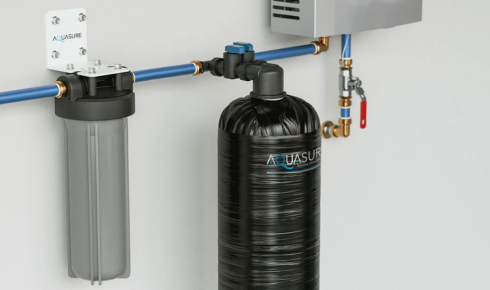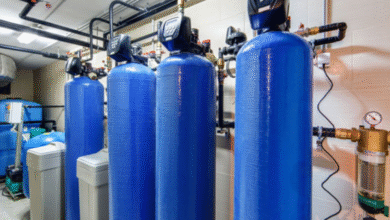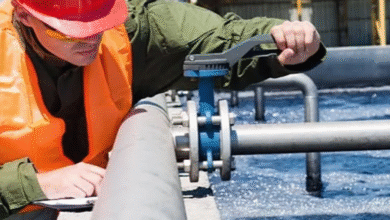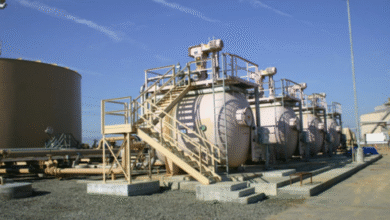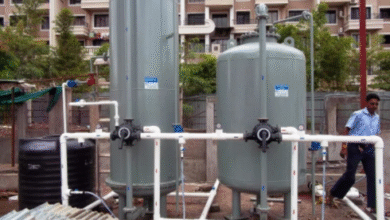If you’ve ever noticed your glasses coming out of the dishwasher looking cloudy, or your shower doors caked in that stubborn white residue, you’re probably dealing with hard water. Austin, beautiful as it is, has water that’s heavy in minerals, and for many households, that translates into extra scrubbing, soap that doesn’t quite lather right, and appliances aging before their time. It’s not the most glamorous problem, but for people living in this city, water quality quietly shapes daily routines more than most realize.
The Case for Treating Water at the Source
Think about it—water touches almost everything in your home. It flows through the pipes, feeds your washing machine, runs over your skin in the shower, and ends up in your morning coffee. If that water is loaded with calcium and magnesium, those minerals are leaving a trail behind. That’s why many people turn to a whole home water softener. Unlike spot fixes or single-point filters, it conditions every drop entering the house. Instead of dealing with residue in the bathroom or trying out endless cleaning hacks on cloudy glassware, a whole-home system quietly prevents the problem in the first place.
It’s the sort of upgrade you don’t think about constantly—until you realize how much smoother showers feel, or how clothes seem to last longer without the scratchiness caused by hard water.
Why Salt Still Has a Seat at the Table
Now, in Austin, there’s a particular conversation going on: salt-based versus salt-free. Both camps have passionate supporters, but it’s worth knowing why some folks still choose a salt-based water softener Austin residents trust. Salt-based models use ion exchange to actually remove those calcium and magnesium ions from the water. The result? Genuinely soft water.
That means less scale build-up in the hot water heater, fewer plumbing issues, and even reduced energy bills because appliances don’t have to work as hard. For people who’ve had to replace a dishwasher or a coffee maker every couple of years, this feels like a quiet financial relief over time. Sure, you’ll need to refill the system with salt now and then, but for households that want truly soft water rather than “conditioned” water, the extra maintenance is usually worth it.
The Rise of Salt-Free Options
On the flip side, Austin is also a city that values eco-friendly alternatives and low-maintenance living. That’s where systems like the electric water conditioner Austin homeowners are talking about come into play. Unlike salt-based softeners, these don’t remove minerals. Instead, they change the way minerals behave in the water, preventing them from sticking to surfaces.
For the average person, that translates into fewer hard water stains and less build-up in pipes, without the need to lug around bags of salt. They also appeal to folks who don’t want sodium introduced into their water supply or who are mindful about reducing salt discharge into the environment. It’s not the same as having “soft” water in the traditional sense, but for many households, the convenience and eco angle make it a smart tradeoff.
Balancing Lifestyle and Practical Needs
At the end of the day, it’s not about which system is “better” in some universal sense—it’s about what matches your lifestyle. If you’re someone who cooks at home a lot, loves spotless glassware, and is already dealing with stubborn scale in appliances, the reliability of a salt-based system might feel like a lifesaver.
If you’re more concerned with sustainability, easy upkeep, or you simply hate the idea of buying salt bags every month, then the electric water conditioner route could suit you perfectly. Either way, the investment usually pays off over time in less scrubbing, fewer repair calls, and the peace of mind that your home’s water isn’t working against you.
A Look at the Bigger Picture
Here’s what’s fascinating: water treatment choices in Austin aren’t just about convenience—they’re part of a bigger conversation about how the city is growing and changing. As more people move here, and as water usage becomes a bigger concern, households are starting to think more holistically about resources. Installing a system isn’t just about softer towels or a longer-lasting coffee machine—it’s also about conserving energy and reducing waste.
When appliances run more efficiently, less water and electricity get wasted. That means lower utility bills for you and less strain on Austin’s infrastructure. It’s a small ripple that extends beyond your front door.
Real Stories from Real Homes
Ask around and you’ll hear plenty of anecdotes. One family might rave about how they finally stopped replacing faucets every couple of years once they added a salt-based unit. Another household might be thrilled that their electric conditioner helped them avoid the never-ending soap scum war in their bathrooms, without the chore of refilling salt. These stories matter, because they highlight that water isn’t some abstract utility—it’s something deeply woven into how comfortable, efficient, and sustainable our homes feel.
The Human Element in Every Drop
And here’s the part that’s often overlooked: water quality affects how we feel in our homes. Taking a shower in softened water just feels different—your skin isn’t as dry, your hair doesn’t have that heavy, dull texture. Brewing coffee with treated water can make it taste brighter. Even doing laundry becomes less of a chore when the machine isn’t battling mineral deposits.
Those small changes add up. They shift the daily experience of living in a home, often in subtle ways you don’t notice until you visit a place with untreated hard water and suddenly miss what you’ve got.
Finding Your Fit
So, what’s the takeaway for Austin homeowners weighing their options? Don’t get too caught up in the marketing noise. Instead, think about your household’s rhythms, your values, and your pain points. Are you tired of constantly scrubbing fixtures and replacing appliances? Or are you more motivated by eco-friendliness and minimal maintenance?
Both salt-based and electric systems have their place, and what works for your neighbor might not be the right answer for you. What’s universal, though, is that ignoring the issue of hard water usually costs more in the long run—whether it’s in time, money, or just plain frustration.
Closing Thoughts
Water treatment doesn’t usually make for exciting dinner table conversation, but it shapes our everyday lives in ways that are surprisingly personal. In Austin, where hard water is a given, choosing the right solution—whether it’s a classic softener or a modern conditioner—is less about gadgets and more about creating a home that feels good to live in.
It’s about protecting what you own, simplifying the chores you hate, and maybe even making that morning coffee taste just a little better. In the end, it’s one of those quiet investments that pays back not just in savings, but in comfort, ease, and the little luxuries that make daily life smoother.
